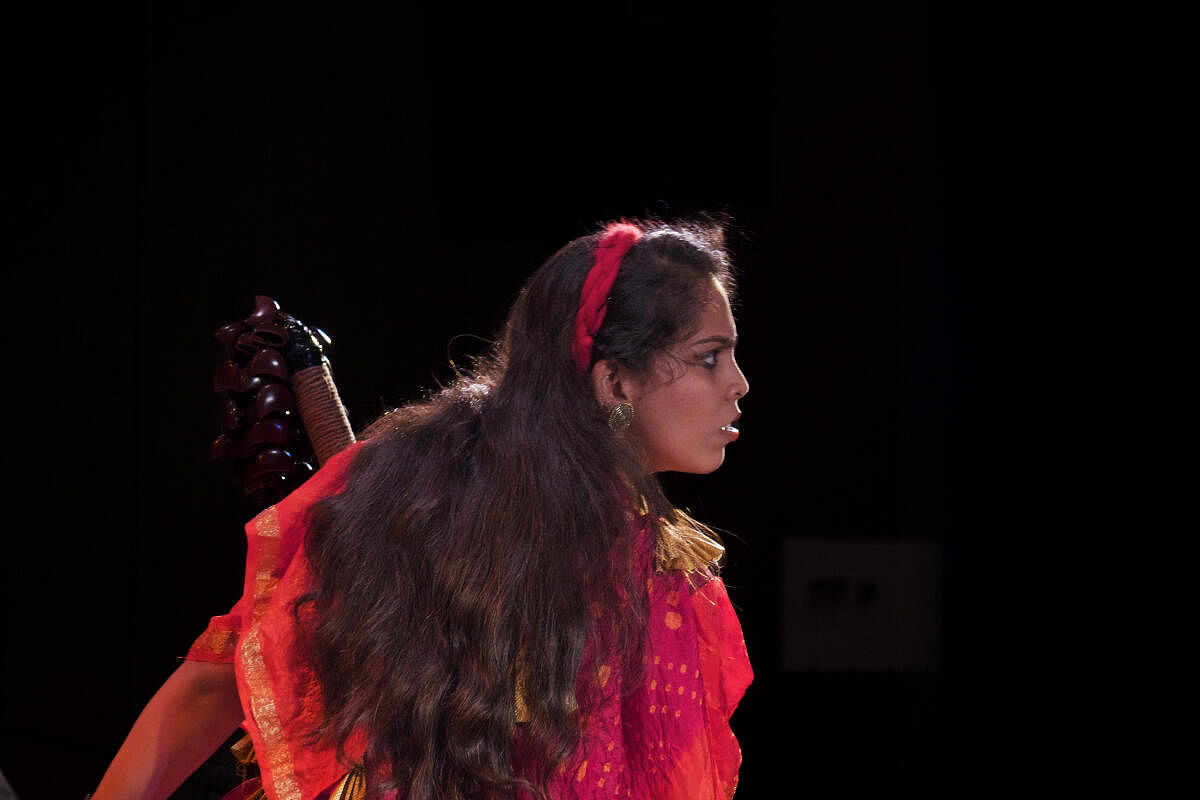
How the audience perceives a play is sometimes a little (or lot) different from what a playwright intends. The experience is also coloured by the director’s interpretation and the actors’ portrayal of the characters. I examined if my perception was coloured by a feminist prism, and was hugely validated when I found the play has been transformative and empowering, perhaps unintentionally.
‘Aranya Kanda’ is a musical and the second of a trilogy of plays drawn from the Valmiki Ramayana and written by Prasanna Heggodu, pioneering theatre director and activist, and staged by Navodaya repertory. He says, “Ramayana is always seen as a story about marriage but it is actually about love. It is love between a man and a woman, love between humans and nature.” Aranya Kanda is set in the forest where Sita and Rama are in exile; they chose not to procreate for 13 years and yet shared a loving relationship.
The playwright eulogises the love that Sita and Rama have for each other and holds it up as a noble feeling. Shoorpanakha’s feelings for Rama are assigned a lower moral ground of infatuation or lust. Prasanna says “It’s a necessity for a play to have contradiction. Sita’s love is giving but Shoorpanakha’s infatuation is demanding.” This is a debatable viewpoint in my opinion and is embedded in the trope of the demure, self-sacrificing woman shining vis-à-vis the bold and assertive woman.
On the plus side, Prasanna discarded the Valmiki Ramayana’s depiction of Shoorpanakha as pot-bellied with unruly hair and made her a beautiful and sensual woman. In the execution of the play, Shoorpanakha owns the higher ground. I mentioned it to the director of the play Dr Sripada Bhat and he laughingly acknowledged that it’s the negative roles that are always sought after by actors as it gives them greater attention.
Brahmara Udupa, the actor who plays Shoorpanakha, projects a sensual self-awareness that brims with confidence. This depiction makes Shoorpanakha the epitome of a self-aware woman who’s unhesitant to assert herself. She is open in her feelings for Rama. Without getting side-tracked into a discussion on morals and marriage, I will confine myself to admiring her unequivocal position in owning her sexuality. When Lakshmana erupts in fury and asks her to go away, she holds her ground. The forest is her natural dwelling place, and it’s the trio from Ayodhya who are the interlopers. Lakshmana’s cruelty in disfiguring her is referenced metaphorically with a rejection. Equally galling to Shoorpanakha is Rama terming her seductive invitation as begging or pleading for love. She rejects this claim.
Udupa has a background in Yakshagana, and having grown up to stories that demonised Shoorpanakha was taken aback when offered a role that shows her as beautiful. “I gradually got an insight into Shoorpanakha’s perspective during the many rehearsals. It dawned on me that her character transcends the conventional idea of beauty. The role is alternately played by two actors and we both don’t fit the conventional mould of beautiful women as we are big built. Acting the part made me realise that there’s more to a woman’s beauty than physical appearance – it is confidence that makes us beautiful. I enjoyed playing Shoorpanakha and I owe it to the director who is known for breaking boundaries. I feel beautiful. When other women who have an inferiority complex because of their bodies see me on stage, they appreciate the way I project confidence in owning my body and expressing love.”
For further readings on alternative depictions of Shoorpanakha, I recommend Volga’s ‘The Liberation of Sita’ and Poile Sengupta’s ‘Thus spake Shoorpanakha, so said Shakuni ‘.
Sandhya Mendonca is an author and cultural evangelist.